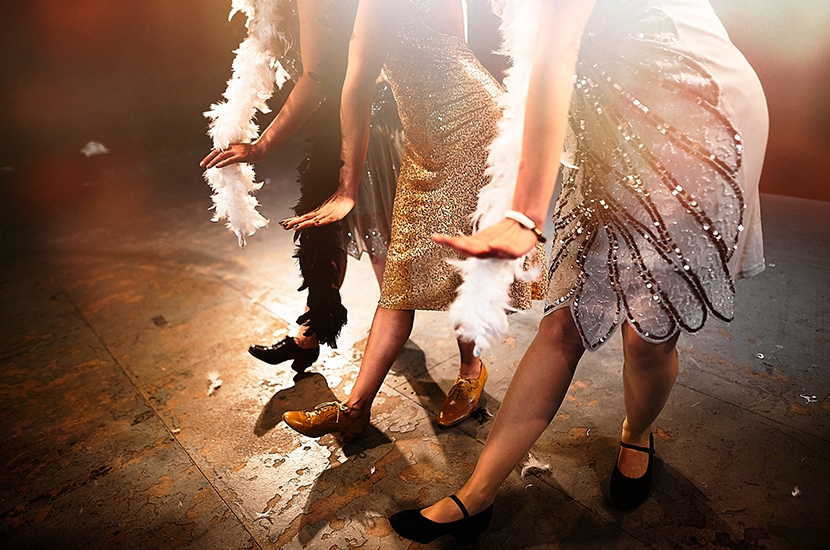Earlier this year, I noted the suggestion (made by an American academic and run with by a swathe of the British press) that we may be about to enter a party decade. The claim was that much as the Great War was followed by the Roaring Twenties, so the Covid era might be followed by a roaring 2020s.
Advocates of the theory might point to the queues of young people waiting to get into the country’s nightclubs at one minute past midnight on Monday’s so-called ‘freedom day’. But I would suggest that there is more evidence accumulating in the opposite direction. Far from roaring, I would say it is more likely that we are entering the era of the Boring Twenties.
Much has already been said about how underwhelming ‘freedom day’ was, not least because our twice-jabbed Prime Minister gave his great national address from self-isolation. Adding to the feeling of merriment, he then warned that from September anyone over the age of 18 hoping to go into a nightclub or other venue ‘where large crowds gather’ will have to show papers demonstrating they are fully vaccinated. Meanwhile the NHS ‘ping’ app has already closed musicals and other live performances that were finally about to return. The future rolling out before us is one not of greater freedom but of endless pings, masks, boosters and variants.

And yet it is the response of wider society, and not just officialdom, which suggests a problem. Small yet suggestive case studies have hinted that we are keener to put the dampeners on than we are to take them off.
Take the response to the antics of Charlie Perry who made national headlines after celebrating England’s Euros final in traditional fashion. The 25-year-old roofer had by his own estimation drunk around 20 cans of cider since 8.30 that morning and later got into Wembley Stadium without paying. On such a day how could his celebrations not have been limitless? These culminated in Leicester Square where Perry pulled his pants down around his ankles, stuck a flare up his bottom and lit it.
The resulting display was clearly intended in a spirit of generosity. As Perry himself said, after ‘18 months of misery’ he fancied that people might want a bit of cheering up. And while this may not be how you or I might try to brighten the mood, it struck Mr Perry as just the ticket. Thanks to all the cider, he claims not to have felt any pain from the sparks. But he does admit that it was a ‘very irresponsible thing to do’.
He doesn’t know the half of it. Some years back, a young squaddie in Sunderland decided to vim up his local Guy Fawkes night by bending over, sticking a rocket up his backside and lighting the blue touchpaper.For reasons we need not linger over, the rocket failed to achieve lift-off, stuck where it was and performed its full display while doggedly lodged in the squaddie’s rectum. I recall the incident, firstly, because the squaddie was taken to hospital with a ‘scorched colon’ (a phrase it is hard to forget); and, secondly, because the firework company felt obliged to release a statement reminding customers that the anus is not a recommended launch site for their product.
The future rolling out before us is one of endless pings, masks, boosters and variants
The point is that Mr Perry’s antics may have been uncouth, unwise even, but they were not that unusual. This is roughly how England fans are expected to behave. What was surprising was the near universal opprobrium. While the crowds in Leicester Square mightily enjoyed the display, the reaction elsewhere was entirely disapproving. Across the media the condemnations were unanimous. Doesn’t he know how dangerous that is? What message does it give out about our nation? That sort of thing.
And Perry is not the only person to have attracted such opprobrium. Many of the clubbers and party-goers who have tried to get their lives back this week have received a similar ticking off. An unmistakable sniffiness is in the air, with generally well-off older people whose own lives are relatively sorted tut-tutting away at younger people wanting to go out and enjoy themselves. How irresponsible, how selfish, appears to be the general reaction. Why can’t they stay at home for another two years?
It is not just the puritanism but the lack of empathy that alarms me. Many of these young clubbers are people who have spent the past 18 months almost completely on their own. They have studied alone, paid tuition fees to do online courses alone, graduated alone and are now heading into unemployment alone. All for a virus that will affect almost none of them. And it seems to me that in such a situation a certain amount of tolerance and understanding should be extended towards them by older people.
Last year, near the start of this pandemic, when everyone was talking about how it might change us, some optimistic types said it might bring us together. Michel Houellebecq is not an optimistic type. In fact he is the pessimist’s pessimist. But it seems to me that the French novelist’s reaction was among the more accurate. Asked what society might look like after the virus, he said he thought it was likely to be the same, but worse.
So far everything is bearing out his analysis. Legislation that was supposed to be temporary has rolled on and on. Restrictions meant to be limited look as if they are going to be with us for the duration. People who like government interference in their lives might be happy. People fond of mass surveillance and monitoring might be happy. People keen on a future in which government and private-sector busybodies use the virus as the ultimate excuse not to do anything they don’t want to do will be happy. And that’s before we get on to the debt, inflation and the growing inability to accrue capital that is again going to disproportionately affect the young. So if these Twenties can roar, then excellent. Good luck to them. But I don’t fancy their chances.







Comments